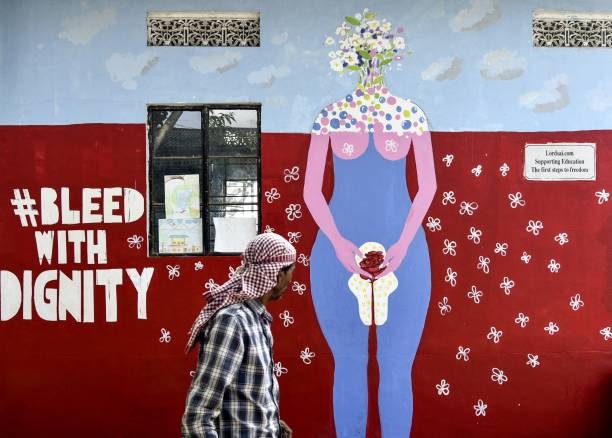Bleeding for Change: Tackling Period Poverty and Empowering Women Worldwide.

“Period poverty is not just a women’s issue; it’s a societal issue that affects us all when we limit the potential of half our population.”
Jennifer Weiss-Wolf
According to UNESCO reports, period poverty can lead to some girls missing up to 20% of their school year. Globally, an estimated 500 million people who menstruate lack access to menstrual products and hygiene facilities. Yet, the topic of period poverty lacks extensive research.
Period poverty refers to the social, economic, political, and cultural barriers to menstrual products, education, and sanitation. It is the lack of access to sanitary products, menstrual hygiene education, toilets, handwashing facilities, or waste management. In 2019, experts from academic institutions, NGOs, governments, UN organizations, and elsewhere formed the Global Menstrual Collective. This institution defines menstrual health as “a state of complete physical, mental, and social well-being and not merely the absence of disease or infirmity, about the menstrual cycle.”
Period poverty can affect people in a variety of ways, making them feel embarrassed about or ashamed of their periods or stigmatizing menstruation around the world. In some communities, for example, menstruating women are seen as impure and banished to huts during their cycles.
According to UNICEF, poor menstrual hygiene can cause physical health risks and has been linked to reproductive and urinary tract infections. Ladies unable to access menstrual products rely on using rags, toilet paper, and children’s diapers or using the menstrual products longer than intended. This can give rise to serious health concerns like infection in the urinary and genital system or toxic shock syndrome in rare cases.
Being unable to manage their period with the appropriate menstrual products can make people feel upset, distressed, and uncomfortable, thus negatively affecting their mental health. It disempowers women, causing them to feel embarrassed about a normal biological process.
It also stops women from reaching their full potential when they miss out on opportunities crucial to their growth. It reduces workforce participation, thus impacting the economy of a country. Discomfort in attending schools can also prevent young girls from receiving a good education, resulting in catastrophic situations like child marriages, early pregnancy, malnourishment, domestic violence, and pregnancy complications.
Girls with disabilities or those living in conflict-affected areas or in the aftermath of natural disasters also remain the worst affected due to period poverty. There are disastrous examples, for example, in Kenya, where some schoolgirls have engaged in transactional sex to pay for menstrual products.
Various steps are taken by governments and civil society worldwide to deal with this issue. In Spain, women suffering severe period pain will be allowed to take between three and five days off a month under a planned new law, according to a BBC news report. In 2020, Scotland became the first country in the world to offer free sanitary products to all women. Last year, New Zealand’s government announced that its schools would have free access to sanitary products from June 2021 to help end period poverty.
According to the poverty action site Global Citizen, the government is investing €1 million in the roll-out of free period products to schools in France. In 2004, Kenya became the first country in the world to remove taxes on imports of sanitary products. In South Africa, the government also ended taxes on period products, known as the ‘tampon tax’. Zambia announced free sanitary products for girls in rural areas and around the outskirts of urban areas in its 2017 budget.
In 2018, the Government of India launched Janaushadi Suvidha. It is an oxybiodegradable Sanitary Napkin complying with ASTM D-6594 standards. It has been launched under Pradhan Mantri Bhartiya Janaushadi Pariyojana by the Union Dept. of Pharmaceuticals.
Concerns about period poverty have fuelled campaigns calling for an end to the so-called tampon tax.
“Meeting the hygiene needs of all adolescent girls is a fundamental issue of human rights, dignity, and public health”
Sanjay Wijesekera, Former UNICEF Chief of Water, Sanitation, and Hygiene.
Reference:
-
Medically reviewed by Valinda Riggins Nwadike, MD, MPH — By Caitlin Geng on September 16, 2021, What to know about period poverty, Medical News Today, https://www.medicalnewstoday.com/articles/period-poverty
-
Leah Rodriguez September 12, 2022, Period Poverty: Everything You Need to Know, Global Citizen, https://www.globalcitizen.org/en/content/period-poverty-everything-you-need-to-know/